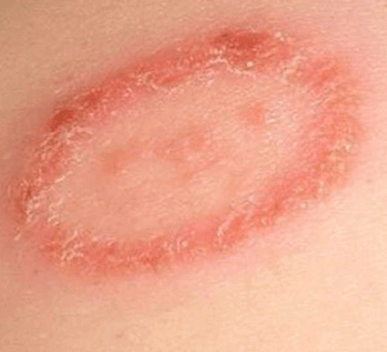Ringworm is a contagious, fungal skin condition that appears as a rash in reddish-pink, scaly, circular patches. Athlete’s foot is the most common form of ringworm, although the disease can also affect the scalp and other parts of the body.
Tues: 8:30am - 3:00pm
Wed: 12:00pm - 6:00pm
Thurs: 8:30am - 3:00pm
Fri: Closed
Sat: 8:30am - 12:30pm
Sun: Closed
Greenvale, NY 11548
Ringworm


What is ringworm?
What causes ringworm?
Ringworm is caused by a fungus that reproduces on the cells in the top layer of the skin. The fungus thrives in warm and moist conditions. Ringworm can spread from skin-to-skin contact with another person or an animal, including pets. Ringworm can also spread by touching objects that have been touched by an infected person or animal. You can also get ringworm from walking barefoot on soil infected with the fungus.
How dermatologists diagnose ringworm
Your dermatologist will likely be able to diagnose ringworm just by examining the infected area. When in doubt, it may be necessary for your dermatologist to take small skin scrapings from the infected area to inspect under a microscope or grow in a culture medium to confirm the diagnosis.
How dermatologists treat ringworm
A variety of over-the-counter topical medications are available to treat milder cases of ringworm. If these treatments don’t fully treat the condition, your dermatologist may prescribe prescription antifungal medications that you apply directly to your skin. Antifungal pills taken orally may also be prescribed to treat severe cases.
Your dermatologist may also recommend careful attention to personal hygiene – especially keeping hands and feet clean. Avoid using personal items that belong to others, including combs, hairbrushes and bath towels, to prevent contracting or spreading ringworm.
If you are concerned about ringworm, click here to schedule an appointment with our board-certified dermatologists or walk into Walk-in Dermatology at your convenience for immediate evaluation.






